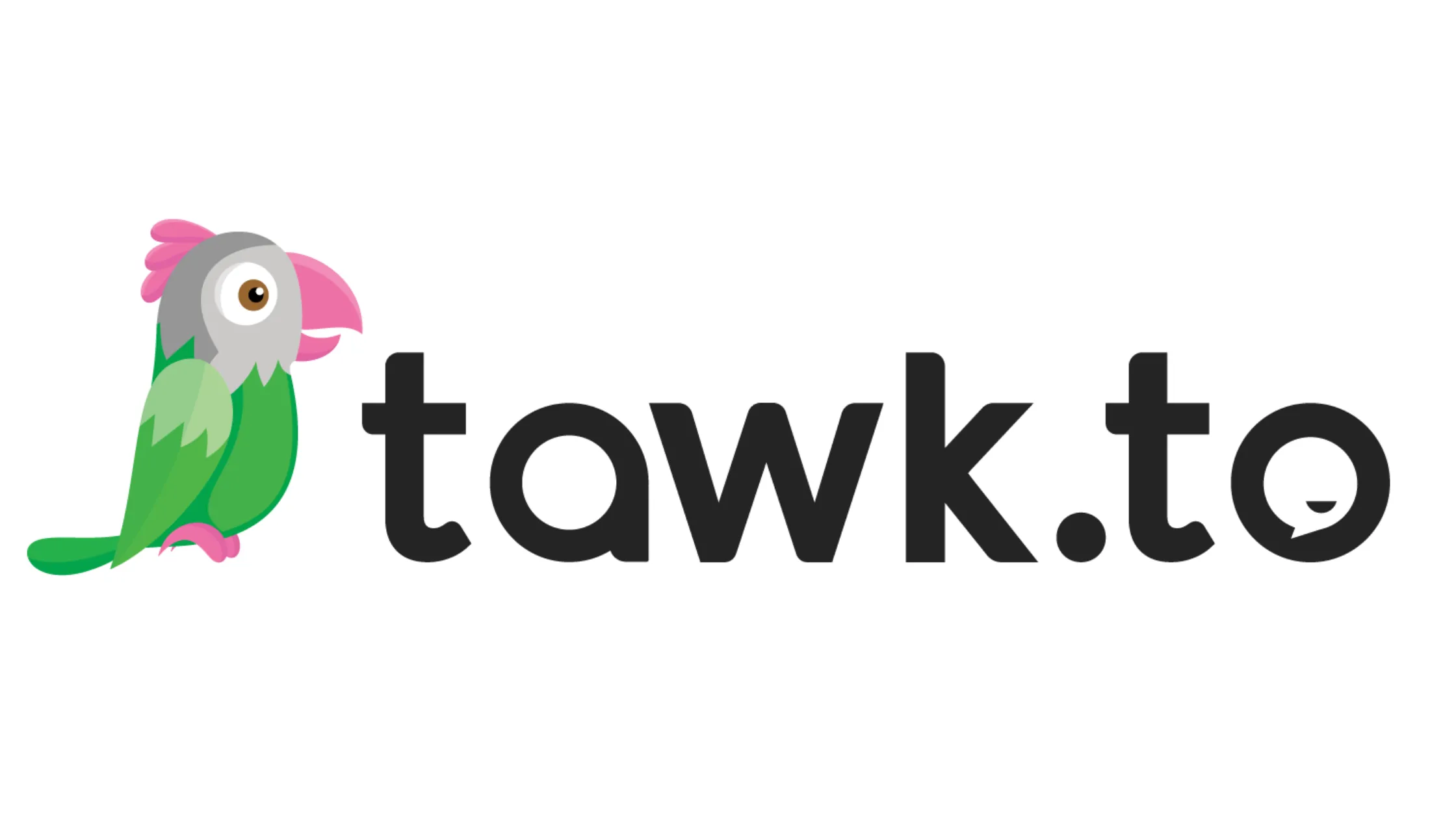
The Founder's Dilemma: When to Hire vs. When to Outsource Development
Explore the critical decision founders face when choosing between hiring in-house developers or outsourcing development. Learn the pros, cons, and strategies.
As a startup founder, you're constantly juggling a million tasks, and one of the most crucial decisions you'll face is how to build your product. It's a real head-scratcher - do you hire an in-house development team or outsource the work? This founder's dilemma can make or break your startup, and there's no one-size-fits-all answer. Let's dive into the nitty-gritty of when to hire versus when to outsource development, shall we?
In today's fast-paced tech world, getting your product to market quickly and efficiently is paramount. But how do you balance speed, quality, and cost-effectiveness? That's the million-dollar question, and we're here to help you crack the code. We'll explore the pros and cons of both hiring and outsourcing, and provide you with the tools to make an informed decision that aligns with your startup's goals and vision.
The Case for Hiring In-House Developers
When it comes to building your dream team, there's something to be said for having developers who are fully invested in your company's success. Let's break down the advantages of bringing talent on board.
Long-term Investment in Your Vision
When you hire in-house developers, you're not just getting coders; you're cultivating a team that breathes and lives your company's mission. These folks will be there day in and day out, immersing themselves in your product and culture. They'll have skin in the game, and that's worth its weight in gold.
Greater Control and Flexibility
With an in-house team, you're the captain of the ship. You can pivot on a dime, make changes on the fly, and have your team right there to implement them. Need to brainstorm at 2 AM? Your team's just a Slack message away. It's like having a Swiss Army knife at your disposal - versatile and always ready.
Building Institutional Knowledge
As your in-house developers work on your product, they're not just writing code; they're accumulating valuable institutional knowledge. This deep understanding of your product's architecture and business logic can be a game-changer as your startup grows and evolves.
The Allure of Outsourcing Development
On the flip side, outsourcing can be a tempting option for founders looking to move fast and keep costs in check. Let's explore why many startups opt for this route.
Cost-Effectiveness and Scalability
Outsourcing can be a real budget-saver, especially in the early stages. You're not on the hook for full-time salaries, benefits, or office space. Plus, you can scale your development team up or down as needed, giving you the flexibility to adapt to changing project requirements.
Access to a Global Talent Pool
When you outsource, the world's your oyster. You're not limited to local talent or constrained by geographical boundaries. Need a React Native expert? There's probably one in Eastern Europe who's perfect for your project. It's like having a buffet of skills at your fingertips.
Focus on Core Business Functions
By outsourcing development, you can free up your time and energy to focus on other critical aspects of your business. You can be the visionary, the sales guru, or the marketing maestro while your outsourced team handles the technical heavy lifting.
When to Hire: Signs It's Time to Build Your In-House Team
Alright, so you're weighing your options. How do you know when it's time to take the plunge and start hiring? Here are some telltale signs:
- Your product is your core competency: If your startup's success hinges on proprietary technology or a unique software solution, bringing development in-house might be crucial for maintaining a competitive edge.
- You need constant iterations and updates: When your product requires frequent changes and improvements, having an in-house team that can quickly respond to market feedback is invaluable.
- You've secured substantial funding: If you've got the financial runway to support a full-time development team, it might be time to invest in long-term talent.
- Your product has complex, industry-specific requirements: Some industries, like fintech or healthcare, have stringent regulatory requirements. An in-house team can ensure compliance and navigate these complexities more effectively.
- You're scaling rapidly: As your startup grows, having a dedicated team that grows with you can provide stability and consistency in your development process.
The Challenges of Building an In-House Team
Before you start posting those job ads, it's worth considering the hurdles you might face:
- Recruitment can be time-consuming and expensive
- You'll need to invest in ongoing training and professional development
- Managing a team adds another layer of responsibility to your already full plate
- There's always the risk of employee turnover, which can disrupt your development timeline
When to Outsource: Scenarios That Favor External Development
Sometimes, outsourcing is the way to go. Here's when you might want to consider this option:
- You're working with a tight budget: If you're bootstrapping or working with limited funds, outsourcing can help you stretch your dollars further.
- You need to move fast: Outsourcing can help you hit the ground running, especially if you need to get an MVP out the door quickly.
- Your project has a defined scope and timeline: For one-off projects or those with clear endpoints, outsourcing can be an efficient solution.
- You need specialized skills for a short period: If your project requires niche expertise that you won't need long-term, outsourcing makes sense.
- You're testing the market: When you're not sure about product-market fit, outsourcing allows you to experiment without committing to a full-time team.
Potential Pitfalls of Outsourcing
Of course, outsourcing isn't all sunshine and rainbows. Keep these potential drawbacks in mind:
- Communication can be challenging, especially across time zones
- Quality control might be more difficult to maintain
- There's a risk of intellectual property theft or security breaches
- You may face cultural differences that impact work styles and expectations
Striking the Perfect Balance: Hybrid Models
Who says you have to choose? Many successful startups are finding that a hybrid model - combining in-house talent with outsourced expertise - can offer the best of both worlds.
Core Team + Outsourced Specialists
Consider building a small, core in-house team to handle critical development tasks and maintain your product's vision. Then, supplement this team with outsourced specialists for specific projects or to handle overflow work during busy periods.
In-House Leadership, Outsourced Execution
Another approach is to keep your leadership and architecture roles in-house while outsourcing the bulk of the development work. This way, you maintain control over the direction and quality of your product while benefiting from the cost-effectiveness of outsourcing.
Making the Decision: Factors to Consider
Now that we've laid out the options, how do you make the right choice for your startup? Here are some key factors to weigh:
- Financial resources: What's your budget? Can you afford to hire full-time developers, or does outsourcing make more sense financially?
- Time constraints: How quickly do you need to get your product to market? Outsourcing might be faster initially, but an in-house team could be more efficient in the long run.
- Product complexity: Is your product straightforward, or does it require deep domain knowledge? The more complex your product, the stronger the case for an in-house team.
- Long-term vision: Where do you see your startup in 3-5 years? If you're planning for significant growth, investing in an in-house team might pay off in the long term.
- Company culture: How important is it to have a team that's fully immersed in your company's culture and values?
Conducting a Cost-Benefit Analysis
Before making your decision, it's crucial to run the numbers. Consider:
- Salaries and benefits for in-house developers vs. outsourcing rates
- Recruitment and training costs
- Potential productivity differences between in-house and outsourced teams
- The cost of managing remote teams or vendors
Best Practices for Success, Whichever Path You Choose
Whether you decide to hire, outsource, or opt for a hybrid model, there are some best practices that can set you up for success:
- Clear communication: Establish strong communication channels and expectations from the get-go.
- Detailed documentation: Maintain comprehensive documentation of your product, processes, and codebase.
- Regular check-ins: Schedule frequent meetings to ensure everyone's on the same page and address any issues promptly.
- Invest in project management tools: Use tools like Jira, Trello, or Asana to keep track of tasks and progress.
- Foster a culture of collaboration: Encourage knowledge sharing and team bonding, even with remote or outsourced team members.
The Importance of Flexibility
Remember, your decision doesn't have to be set in stone. As your startup evolves, so too can your development strategy. Be prepared to reassess and adjust as needed.
Real-World Examples: Success Stories and Cautionary Tales
Let's take a look at how some successful startups have navigated this dilemma:
- Basecamp: Known for their strong in-house culture, they've built a successful product with a small, dedicated team.
- Skype: Initially outsourced their development to Estonian developers, before eventually bringing the team in-house.
- Slack: Started with a small in-house team and gradually expanded as they grew, maintaining a strong focus on company culture.
On the flip side, we've seen startups struggle when they:
- Outsourced without clear specifications, leading to misaligned expectations and poor-quality code
- Hired too quickly without proper vetting, resulting in a team that wasn't a good fit for their needs
- Failed to invest in proper communication tools and processes, causing delays and miscommunications
Transitioning Between Models: When and How to Make the Switch
As your startup grows and evolves, you might find that your initial development strategy no longer fits the bill. Let's explore how to navigate these transitions smoothly.
From Outsourcing to In-House
Many startups begin by outsourcing and later transition to an in-house team. Here's how to make this shift without missing a beat:
- Gradual integration: Start by hiring a few key in-house developers to work alongside your outsourced team. This allows for knowledge transfer and a smoother transition.
- Clear timelines: Establish a realistic timeline for the transition, considering project deadlines and the time needed to recruit and onboard new team members.
- Documentation is key: Ensure all project details, codebase information, and processes are well-documented to facilitate the handover.
- Maintain relationships: Keep good relations with your outsourced partners. You never know when you might need their specialized skills again.
Scaling Back In-House Teams
Sometimes, you might need to scale back your in-house team and outsource more. This can be tricky, but here are some tips:
- Be transparent: Communicate openly with your team about the reasons for the change.
- Offer alternatives: Consider offering remote work options or part-time roles to retain valuable team members.
- Plan for knowledge transfer: Set up systems to ensure critical knowledge isn't lost in the transition.
The Role of Technology in Your Decision
In this digital age, the tools and technologies at your disposal can significantly impact your hire vs. outsource decision. Let's dive into how tech can influence your choice.
Cloud Services and DevOps
The rise of cloud services and DevOps practices has made it easier than ever to manage distributed teams and outsourced development. Tools like AWS, Azure, and Google Cloud Platform allow for seamless collaboration and deployment, regardless of where your developers are located.
AI and Automation
Artificial Intelligence and automation tools are changing the game in software development. These technologies can potentially reduce the number of developers you need, whether in-house or outsourced. Consider how these tools might fit into your development strategy.
Legal and Compliance Considerations
When deciding between hiring and outsourcing, don't forget to factor in the legal and compliance aspects. This is especially crucial if you're in a regulated industry or dealing with sensitive data.
Intellectual Property Protection
When you hire in-house, it's generally clear that the company owns all intellectual property created by employees. With outsourcing, you'll need robust contracts to ensure you retain rights to the code and innovations developed for your product.
Data Security and Privacy
If your product handles user data, you'll need to consider how to maintain security and compliance with regulations like GDPR or CCPA. In-house teams might offer more control, but many outsourcing firms now specialize in secure, compliant development practices.
The Human Factor: Building a Strong Development Culture
Whether you're hiring or outsourcing, fostering a strong development culture is crucial for long-term success. Let's explore how to create an environment that attracts and retains top talent.
Cultivating a Learning Environment
Developers thrive in environments that encourage continuous learning and growth. Whether in-house or outsourced, provide opportunities for skill development and staying up-to-date with the latest technologies.
Embracing Diversity and Inclusion
A diverse team brings a wealth of perspectives and ideas to your product development. When hiring or choosing an outsourcing partner, prioritize diversity and inclusion to foster innovation and creativity.
Financial Strategies for Development Costs
Managing the financial aspects of your development strategy is crucial for your startup's success. Let's look at some strategies to optimize your spending.
Budgeting for the Long Term
When deciding between hiring and outsourcing, consider not just the immediate costs but also the long-term financial implications. Factor in potential scaling needs, training costs, and the possibility of pivoting your product.
Exploring Funding Options
If you're leaning towards building an in-house team but are concerned about the costs, explore funding options specifically for talent acquisition. Some investors specialize in helping startups build their core teams.
The Impact on Company Culture and Branding
Your development strategy doesn't just affect your product; it also influences your company culture and brand image. Consider how your choice aligns with your values and the image you want to project to customers and potential hires.
Building a Strong Employer Brand
If you're planning to hire in-house, investing in your employer brand can help attract top talent. Showcase your company culture, development practices, and the exciting challenges your team is tackling.
Maintaining Culture with Distributed Teams
If you opt for outsourcing or a hybrid model, be intentional about including your external developers in your company culture. Regular video calls, team-building activities, and clear communication of your values can help create a cohesive team, regardless of location.
As we've seen, the founder's dilemma of when to hire versus when to outsource development is complex and multifaceted. There's no one-size-fits-all solution, and the right choice depends on your unique circumstances, goals, and resources.
Remember, this decision isn't just about coding - it's about building the foundation for your startup's future. It's about creating a team and a process that can turn your vision into reality, scale with your ambitions, and adapt to the ever-changing tech landscape.
Whether you choose to hire an in-house dream team, partner with top-notch outsourced developers, or find a balance between the two, the key is to remain flexible, communicate clearly, and always keep your long-term goals in sight.
Don't let this crucial decision keep you up at night. If you're still unsure about the best path forward for your startup, remember that expert help is just a click away. The team at Horizon Labs has a wealth of experience in guiding founders through this exact dilemma. We can provide personalized insights based on your specific situation and help you craft a development strategy that sets your startup up for success.
Ready to solve your founder's dilemma and take your startup to the next level? Reach out to Horizon Labs at info@horizon-labs.co or visit https://www.horizon-labs.co/contact. Our team of experts is standing by to help you navigate this critical decision and implement a development strategy that aligns perfectly with your vision and goals. Don't leave your startup's future to chance - get the support you need to make the right choice today!
Frequently Asked Questions (FAQs) about Outsourcing For Startups:
Q: How does the stage of my startup affect the decision to hire or outsource development?
A: The stage of your startup plays a crucial role in this decision. Early-stage startups often benefit from outsourcing due to limited resources and the need for flexibility. As you grow and secure more funding, transitioning to an in-house team becomes more feasible and beneficial for long-term product development. Middle-stage startups might opt for a hybrid model, while later-stage companies typically lean towards robust in-house teams to maintain control over their core technology.
Q: Are there any industry-specific factors that influence the hire vs. outsource decision?
A: Absolutely. Industries with heavy regulations, like fintech or healthcare, often lean towards in-house teams due to compliance requirements and the need for specialized knowledge. On the other hand, industries with rapidly changing technologies might benefit from outsourcing to access cutting-edge skills without long-term commitments. E-commerce and content-driven startups might find outsourcing more suitable for handling fluctuating workloads.
Q: How does the decision to hire or outsource impact a startup's ability to pivot?
A: This is a critical consideration. In-house teams generally offer more flexibility to pivot quickly, as they're deeply embedded in your company's vision and can rapidly shift focus. However, they also represent a significant fixed cost. Outsourced teams might be less agile in terms of pivoting but offer the advantage of easily scaling down or changing skill sets if your direction changes dramatically. A hybrid model can provide a balance, allowing for some quick internal pivots while maintaining the flexibility to bring in new skills as needed.
Q: What are some hidden costs associated with hiring in-house developers that founders often overlook?
A: Many founders underestimate the total cost of in-house teams. Beyond salaries, there are expenses like benefits, taxes, equipment, office space, and ongoing training. There's also the opportunity cost of time spent on recruitment and management. Additionally, there's the potential cost of making a bad hire, which can be particularly damaging for a startup. Lastly, as your team grows, you'll need to invest in more robust HR and management structures, which adds another layer of complexity and cost.
Q: How can a founder assess the quality of outsourced development work
?A: Assessing outsourced work requires a strategic approach. Start by setting clear, measurable objectives and milestones. Implement regular code reviews and use project management tools to track progress. Consider hiring a technical advisor or CTO to oversee the quality of work. It's also crucial to have a thorough testing process, including automated tests where possible. Don't hesitate to ask for references or case studies from the outsourcing firm. Lastly, consider starting with a small project to evaluate their work before committing to a larger engagement.
Q: Is it possible to maintain a strong company culture when outsourcing development?
A: While challenging, it's certainly possible to maintain a strong culture with outsourced teams. The key is to be intentional about inclusion. Regular video calls, virtual team-building activities, and shared digital spaces can help create connections. Clearly communicate your company's values and vision, and involve outsourced teams in relevant company-wide meetings or updates. Some companies even fly in outsourced team members for occasional in-person meetings. Remember, culture is about shared values and goals, not just physical proximity.
Q: How does the decision to hire or outsource impact a startup's valuation and ability to attract investors?
A: This decision can significantly influence investor perception. Some investors prefer startups with strong in-house technical teams, viewing it as a sign of long-term commitment and intellectual property protection. However, others appreciate the capital efficiency of outsourcing, especially in early stages. A hybrid model can be attractive, showing both technical capability and financial prudence. Ultimately, what matters most to investors is your ability to execute and grow efficiently. Be prepared to explain your development strategy and how it aligns with your long-term goals.
Q: Are there any emerging trends in development that might influence the hire vs. outsource decision in the near future?
A: Several trends are shaping this landscape. The rise of no-code and low-code platforms is making it easier for non-technical founders to build MVPs without extensive development resources. AI-assisted coding tools are increasing developer productivity, potentially reducing the number of developers needed. The normalization of remote work is blurring the lines between in-house and outsourced teams, making hybrid models more attractive. Additionally, the growing gig economy is creating a larger pool of specialized freelance developers, offering more flexible options between full outsourcing and traditional hiring.
Need Developers?
We help companies build ideas into apps their customers will love (without the engineering headaches).
















For Startups & Founders
We've been founders ourselves and know how valuable the right communities, tools, and network can be, especially when bootstrapped. Here are a few that we recommend.

Mistakes to Avoid When Building Your First Product
Learn the key mistakes founders make when building their first product—and how to avoid them for a faster, smoother launch.
Read more
The Rise of AI in Product Development: What Startups Need to Know
Learn how AI is transforming product development for startups. From MVPs to scaling, here’s what founders need to know in today’s AI-driven world.
Read more
No-Code vs. Custom Development: Which is Right for Your Startup?
Weighing no-code vs. custom development? Learn which is right for your startup depending on stage, budget, and product complexity.
Read more
What is Mixpanel?
Learn how Mixpanel helps startups track user behavior to improve products and accelerate growth with clear data-driven insights.
Read more
How Tawk.to Can Boost Your Startup’s Customer Support Game
Learn how Tawk.to can benefit startups by enhancing customer support and engagement. Perfect for early-stage founders!
Read more
Grow Your Startup With Anthropic's AI-Powered Tools
Discover how Anthropic's cutting-edge AI tools can accelerate your startup's success. Learn about their benefits and see why they can be trusted by startups.
Read more
What is Data-Driven VC?
Learn what a data-driven VC means and how such investors can benefit your startup’s growth and fundraising journey.
Read more
What is Blockchain?
A beginner-friendly guide on blockchain for startup founders, covering key concepts, benefits, challenges, and how to leverage it effectively.
Read more
What is Cybersecurity?
Learn cybersecurity basics tailored for startup founders. Understand key risks, best practices, and how to protect your startup from tech threats.
Read more
What is Seedcamp?
Learn what Seedcamp is, how its European seed fund and accelerator program work, and how founders can use its capital, mentorship, and network to scale their st
Read more
What is AngelList?
AngelList is a prime platform connecting startup founders to investors, talent, and resources to accelerate early-stage growth.
Read more
What is 500 Startups?
Learn what 500 Startups (now 500 Global) is, how its accelerator and seed fund work, and when founders should consider it—plus tips for early-stage startups.
Read more.png)